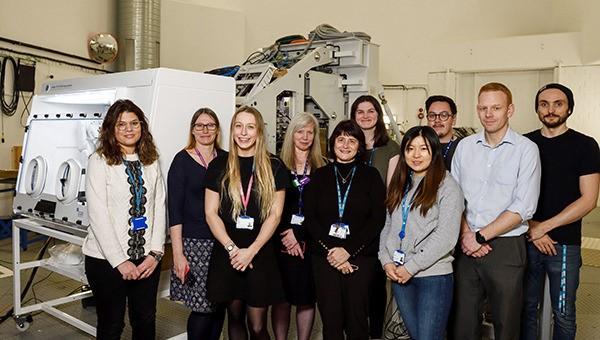Celebrating and reflecting on the milestone of our 100th Research Team Leader Course, this is the third of three short conversations with Professor Karen Kirkby who contributed to the original design and delivery of the course in 2006, exploring:
-
the culture of research
-
why train researchers in leadership and teamwork?
-
the impact of leadership training on my career.
The impact of leadership training on my career
Shirley: What has the impact of Leadership Training been on you?
Karen: Bearing in mind that when I was first asked to attend a leadership training course I was dragged along kicking and screaming. I wanted to get on with my teaching and research projects. At the end I thought that this was one of the best things I had done in my life.
I learned things about myself, that I didn’t know; how I react and how I could actually lead a team better. One of the most helpful concepts for me was that leadership is a role and a function, so you could let go of being a born leader and just ask; ‘If you get put in that situation; how do you lead?’
John Adair’s ‘Functional Leadership’ is very pragmatic. You think about what you need to do. The more you do and think about how it went the better you get.
Shirley: How did you feel about being asked to contribute to RTL in 2006?
Karen: When I was first asked to work on RTL I felt that it was very exciting. I thought, as this has been one of the most important things I have done in my life, that offering it to others was very important.
Shirley: When you were delivering the course did you use examples from your own leadership?
Karen: All the time! Not always to tell what went right, but to reflect on how things could have gone better. I started to be able to think about how to turn things round. The first step is to identify that things could be going better and then to develop the confidence to try to improve it.
Shirley: Would you say which things you have done regularly in your work?
Karen: Making sure you consult the team, don’t think that you have all the answers. Being prepared to say; ’I don’t think we should do this, but it is an option, let’s talk about it. It can be easy to hide in academic life and avoid making the tough decisions. It takes courage to say; ‘This isn’t right, and it needs to change. This is how we can do things differently.’
The task, the team and the individual all need your attention. It is a balancing act, asking; ‘Where am I with this group and this project?’
I find it useful to know that new projects don’t all start off well. My group has gone from three people to 40 people, but it is not just forming and growing the group it is keeping them. Keeping them happy in the project so that they stay longer and keep building their skills. We are aware that we get annoyed and talking is important.
During Covid it has been more difficult, my team have been working remotely and also at night in our research room. We have all experienced difficulties and tragedies in our personal lives and we have had to make difficult decisions which impact on the lives of others. Never have the skills that RTL teaches been more valuable and never have I had to rely on them more.

Professor Karen Kirkby
Professor Karen Kirkby holds the Richard Rose Chair for Proton Therapy Physics which is a joint appointment between the University of Manchester and the Christie NHS Foundation Trust. She is the research lead for proton therapy in Manchester, bringing together the research effort on proton therapy between the University, the Christie and the CRUK Major Centre as a part of £250m investment in proton therapy. She also represents the UK internationally.
Karen has a grant portfolio of over £28m with funding and over 200 papers in peer reviewed journals, including Nature and has also written for popular science magazines and the broadsheets.

The next cohort of Research Team Leadership in Changing Times takes place on 14-15 October 2021. Find out more